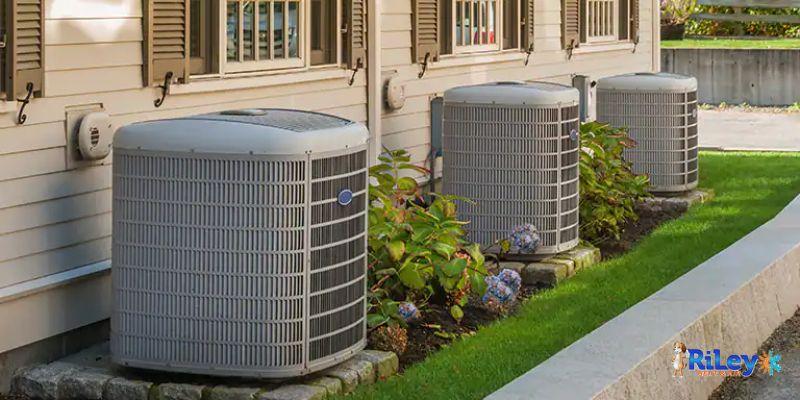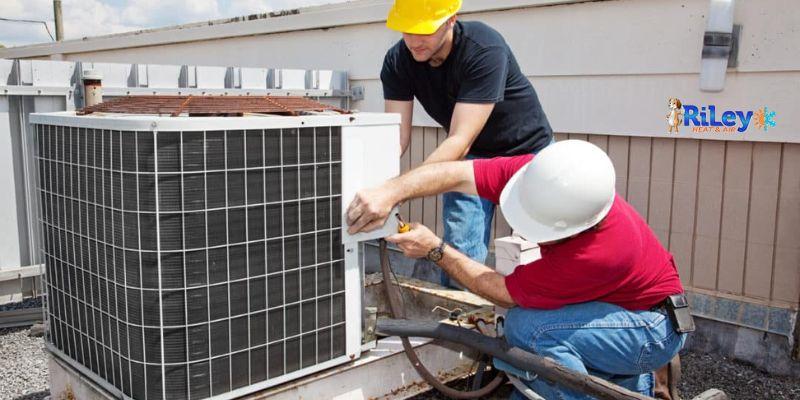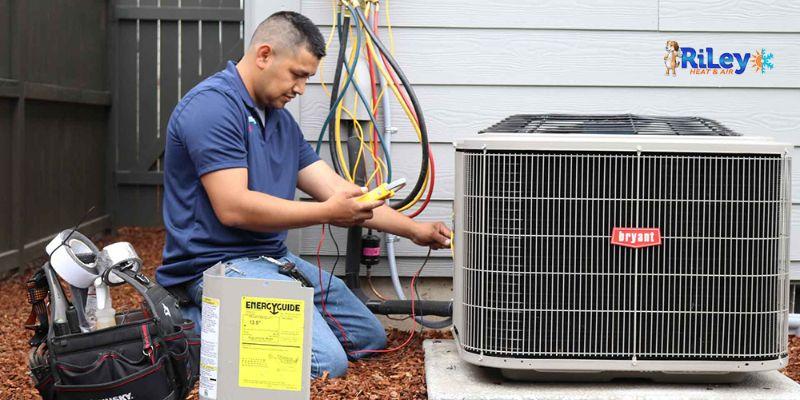
Key Considerations for Choosing the Right Heating Furnace System for Your House This Winter
As winter approaches, the thought of cozy nights, warm blankets, and a steaming cup of cocoa is undoubtedly inviting. However, to truly enjoy the winter season, you need a reliable heating furnace system to keep your home comfortable and warm.
Selecting the right heating furnace system is a crucial decision that can impact your comfort, energy bills, and the environment. In this article, we will explore the key considerations for choosing the perfect heating furnace system to ensure your home remains a haven of warmth and comfort throughout the winter months.
Tips for Choosing the Right Heating Furnace System
1. Fuel Source: Gas, Electric, or Oil?
The first and perhaps most fundamental consideration when choosing a heating furnace system is the fuel source. There are three primary options: natural gas, electricity, and oil. Each has its own set of advantages and disadvantages.
- Natural Gas: Gas furnaces are known for their efficiency and cost-effectiveness. They produce heat quickly and can maintain a consistent temperature in your home. However, they require access to a natural gas supply, which may only be available in some areas. Gas furnaces can also have a higher upfront cost compared to electric options.
- Electric: Electric furnaces are generally less expensive to install than gas furnaces and can be suitable for homes without access to natural gas. They are highly efficient, but electricity can be a more expensive fuel source in some regions, leading to higher monthly bills.
- Oil: Oil furnaces are less common but still offer reliable heating. They require an oil tank and periodic refilling, which can be less convenient than gas or electricity. However, they are highly efficient and provide steady warmth even in the coldest weather.
2. Heating Efficiency: AFUE Rating
 The efficiency of a heating furnace system is a critical factor in determining its long-term operating costs. The Annual Fuel Utilization Efficiency (AFUE) rating measures how effectively a furnace converts fuel into heat. The higher the AFUE rating, the more efficient the system utilizes the energy source.
For example, a furnace with an AFUE rating of 95% converts 95% of the fuel into usable heat, while the remaining 5% is lost as waste. High-efficiency furnaces can save you money on energy bills over time, but they often come with a higher initial investment.
The efficiency of a heating furnace system is a critical factor in determining its long-term operating costs. The Annual Fuel Utilization Efficiency (AFUE) rating measures how effectively a furnace converts fuel into heat. The higher the AFUE rating, the more efficient the system utilizes the energy source.
For example, a furnace with an AFUE rating of 95% converts 95% of the fuel into usable heat, while the remaining 5% is lost as waste. High-efficiency furnaces can save you money on energy bills over time, but they often come with a higher initial investment.
3. System Size: Matching the Heating Load
Selecting the right size of heating furnace system is crucial for maintaining a comfortable indoor temperature. If the system is too small, it will struggle to keep your home warm during extreme cold, leading to higher energy bills and potential wear and tear on the system. Conversely, an oversized system can lead to short cycling, where the furnace turns on and off frequently, reducing lifespan and efficiency. To determine the appropriate furnace size, it's essential to calculate the heating load of your home. Factors such as the size of your home, insulation, window quality, and climate play a significant role in this calculation. Consulting with a professional HVAC technician can help you determine the right furnace size that meets your specific needs.4. Ductwork and Distribution System
Your heating furnace is only as effective as the ductwork and distribution system that carry warm air throughout your home. If your ducts are leaky, poorly insulated, or adequately designed, you could retain a substantial amount of heat, reducing the system's efficiency. Before investing in a new heating furnace, consider having your ductwork inspected and, if necessary, repaired or upgraded. Proper duct maintenance can significantly enhance the performance of your heating system and help you save on energy bills.5. Noise Levels
The noise level of a heating furnace system may not be the first thing that comes to mind. Still, it's an important consideration, especially if your furnace is located near living areas, bedrooms, or other places where noise could be a disturbance. Newer heating furnace models tend to be quieter, but it's still worth checking the decibel rating and discussing noise levels with your HVAC professional. A quieter system can enhance your comfort and overall satisfaction with your heating system.6. Smart and Energy-Saving Features
In today's technologically advanced world, many heating furnace systems come with smart and energy-saving features. These features can help optimize your heating system's performance and reduce energy consumption. Some of the key features to look for include:- Programmable thermostats: allow you to set and control temperature schedules to match your daily routine, saving energy when you're not at home.
- Zoning systems: Divide your home into zones, each with its thermostat, to heat only the occupied areas, improving energy efficiency.
- Variable-speed blowers: These adapt to the heating load, delivering the right amount of warm air without wasting energy.
- Energy-efficient pilot lights: Many newer systems use electronic ignition, eliminating the need for a continuous pilot light, which can consume gas.
- Air filtration and humidity control: These features improve indoor air quality and comfort, making your home healthier and more pleasant.
7. Budget and Financing Options
Heating furnace systems come in various price ranges, so it's crucial to set a budget that aligns with your financial capabilities. Remember that investing in a more efficient furnace may have higher upfront costs but can lead to long-term savings on energy bills. Explore financing options, rebates, and tax credits available to you. Many regions offer incentives for upgrading to energy-efficient heating systems, which can help offset the initial investment.8. Maintenance and Warranty
Like any mechanical system, heating furnaces require regular maintenance to ensure optimal performance and longevity. Before purchasing a heating furnace, it's essential to consider the ongoing maintenance requirements and costs. Additionally, check the warranty provided by the manufacturer. A robust warranty can provide peace of mind and protect your investment. Be sure to understand the terms and conditions of the warranty, including what is covered and for how long.Conclusion
Selecting the right heating furnace system for your home is a significant decision that involves various considerations, from the fuel source and efficiency to size, noise levels, and environmental impact. By carefully evaluating these factors and seeking professional guidance, you can make an informed choice that ensures your home remains warm and comfortable throughout the winter while also potentially saving on energy bills and reducing your environmental footprint. With the right heating furnace system, you can genuinely embrace the winter season and create a cozy and inviting atmosphere in your home.COMMENTS
LEAVE A COMMENT








This blog succinctly captures the critical considerations for selecting the right heating furnace system. As winter approaches, making an informed decision is crucial to ensure comfort and efficiency. The author provides valuable insights, making the furnace selection process more manageable for readers. A must-read for anyone gearing up for the colder months!
This blog succinctly captures the critical considerations for selecting the right heating furnace system. As winter approaches, making an informed decision is crucial to ensure comfort and efficiency. The author provides valuable insights, making the furnace selection process more manageable for readers. A must-read for anyone gearing up for the colder months!